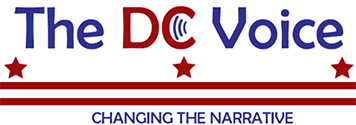With $15 per hour kicking in this year, D.C. is a national minimum wage leader.
Wage increases nationwide are the hard-earned fruit of years of agitation in working communities. In November 2012, New York City fast-food workers, backed by New York Communities for Change, held the first one-day walkout to demand rights to unionize and to fight for $15. The Service International Employees Union (SEIU) got behind similar strikes in Chicago, Milwaukee, St. Louis, Flint, Kansas City, and Detroit. So did low-wage retail workers. In 2013, Kshama Sawant got elected to the Seattle City Council while championing a $15 wage. By 2015, Seattle was the first major U.S. city to make $15 the minimum wage. New York City would follow.
In contrast, U.S. Congressmembers seem incapable of replacing the $7.25 minimum from the Fair Minimum Wage Act of 2007. The House of Representatives’ $15-minimum Raise the Wage Act of 2019 is one of many bills now languishing in the Senate.
$15 Is Already Obsolete
Hourly wages are not, of course, today’s whole income story. Recent research published on the IRS website calls self-employed contract workers the 1099 workforce, accounting for about 12% of the country’s workers, and suggests 30% of workers are doing some type of “informal” work. D.C. is a hub for such work.
Even if everyone worked full time, $15 an hour would only add up to $31,200 a year, gross. To support a household of four with $54,500 a year, one earner would have to work 40-hour weeks, year-round, at $26 hourly, Frank Stricker pointed out in 2017. And today’s employers do not typically offer 40-hour weeks.
$15 is not enough.
Yet the D.C. Fair Shot Minimum Wage Amendment Act of 2016 does acknowledge the need to keep doing better. This year, it brings hourly wages up from $14 to $15. Next year and in future years, D.C. pay will include cost-of-living increases. A number of states have enacted these. They’re vital provisions, ensuring workers aren’t stuck at a certain level for years.
And if you’re earning tips, your base wage this year rises to $5.00—and your employer is required to pitch in so you take home at least $15 an hour like everyone else. This is especially important for people in underpaid, gender-stratified work in the service industries.
Will the Tide of Inequality Finally Turn in 2020?
Many states are phasing in $15 minimums in the next few years. And many aren’t. Several states have no minimums, or have left theirs lower than the current federal minimum (and some of those states’ workers’ wages aren’t protected by federal law).
Virginia is still at $7.25…but working on it and will have $10 by the 1st of July. Maryland’s now at $11. Maryland companies with 14 staffers or more must hit the $15 mark by 2025.
Over the course of the Democratic debates, we’ve heard Bernie Sanders and Elizabeth Warren blast the federal government’s generosity with large corporations and the very rich. The high pay at the top is evidenced in Congressional Budget Office numbers. Income for the wealthiest 1% has risen about 17% over five years while pay for the least wealthy fifth has risen less than 5%.
Part of this comes from work. Part comes from food stamps, Medicaid, and helpful tax treatment that people need because they’re struggling. Decent wages can reduce workers’ reliance on financial assistance, helping everyone who pays into the tax system. What’s not to like?
In fact, recent Pew research finds two-thirds of the U.S. population backing a $15 federal minimum. Support is mainly from Democrats, yet most Republicans with household incomes under $40,000 want it, too. There’s no political excuse to lag below $15 in 2020.
The fallout from California’s Assembly Bill 5 shows just how tricky it can be to hold the gig economy accountable. Policymakers must find ways to keep a tech-driven economy fair without punishing the people they mean to help. Meanwhile, raising wages where we can, reflecting cost-of-living increases, is the least we can do. D.C. is doing it. It’s one step on the way to quality jobs and quality of life for all.


















Add comment